*
See how the Broncos celebrated Head Coach Vance Joseph's first win after Shelby Harris' game-saving blocked field goal. (Photos by Gabriel Christus, unless noted)

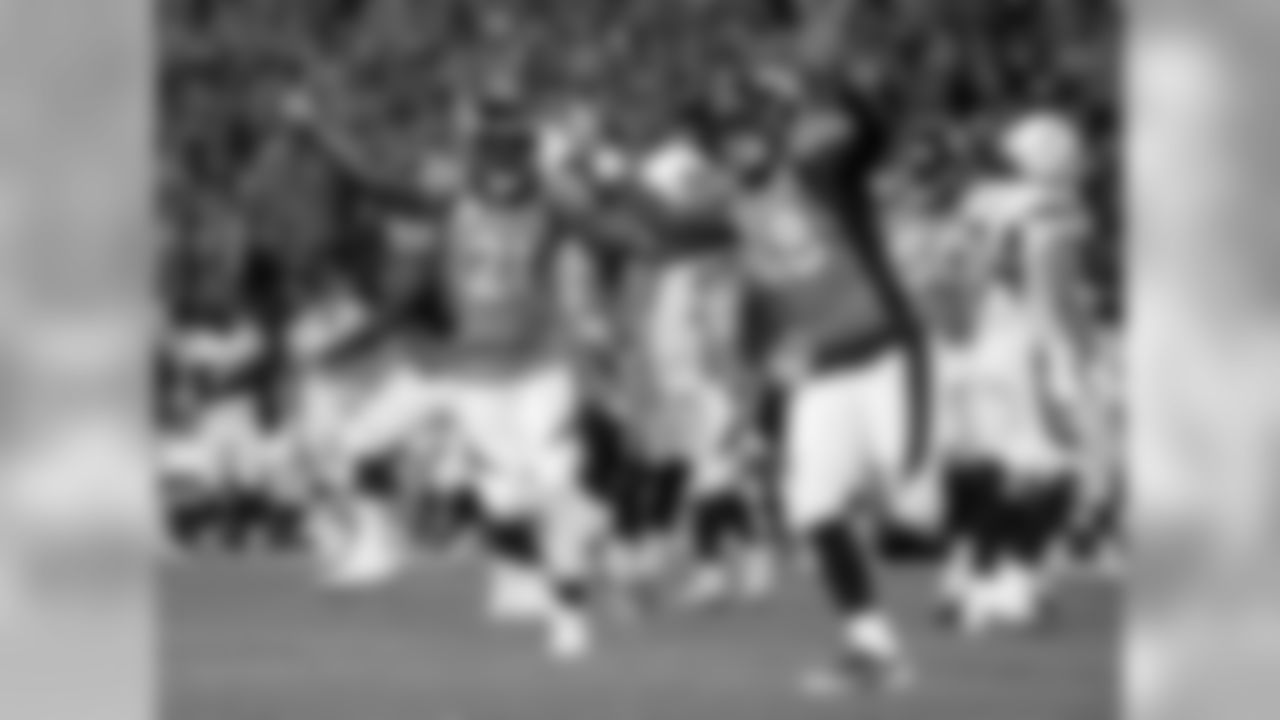
Photo by AP Images
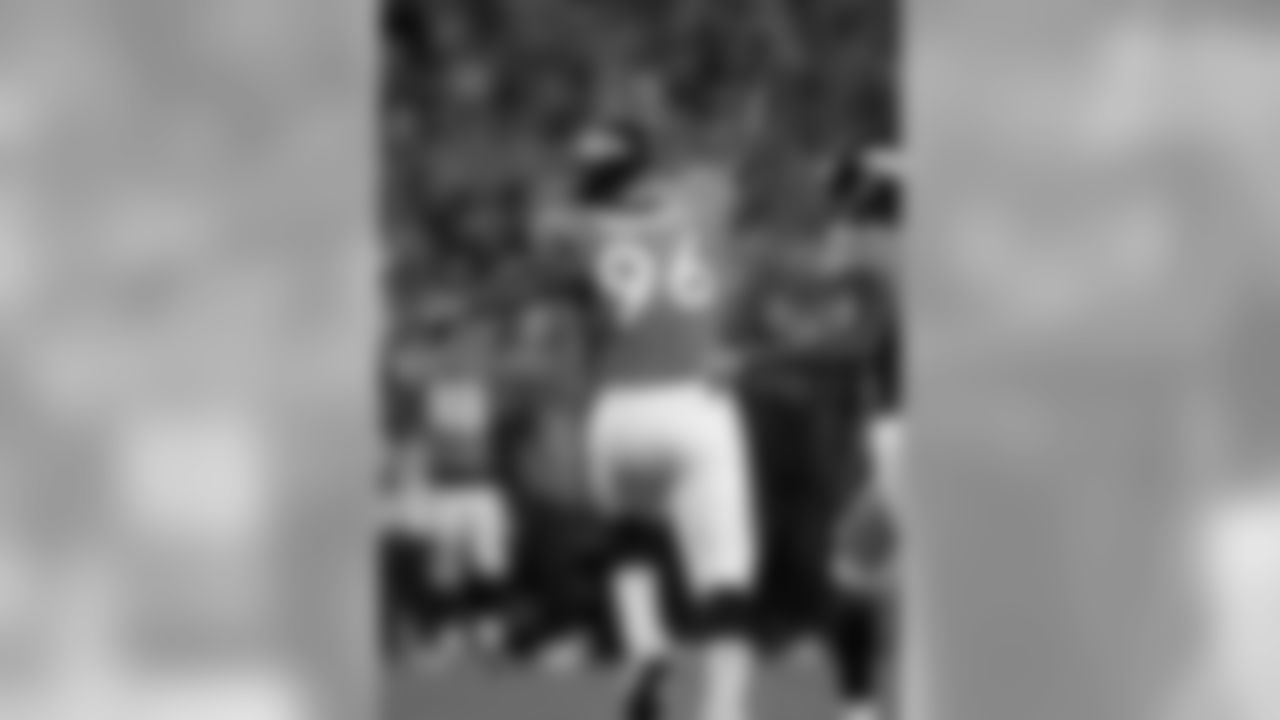
Photo by AP Images
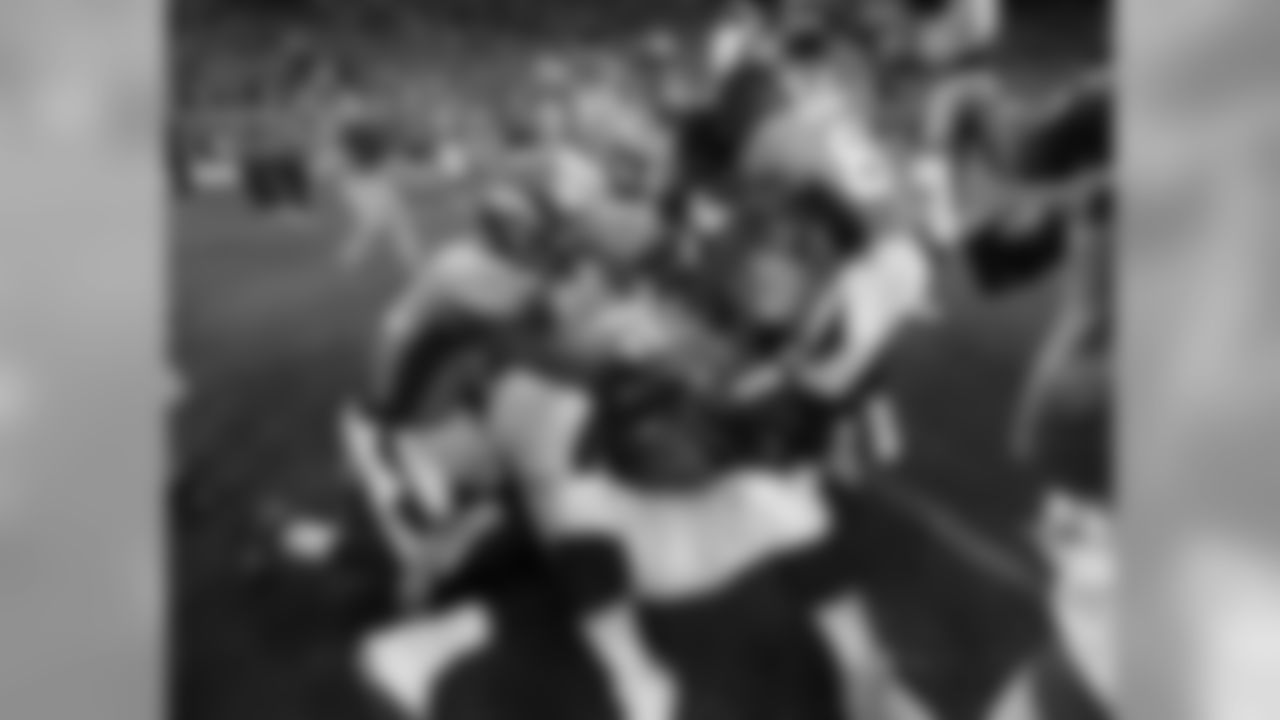
Photo by AP Images
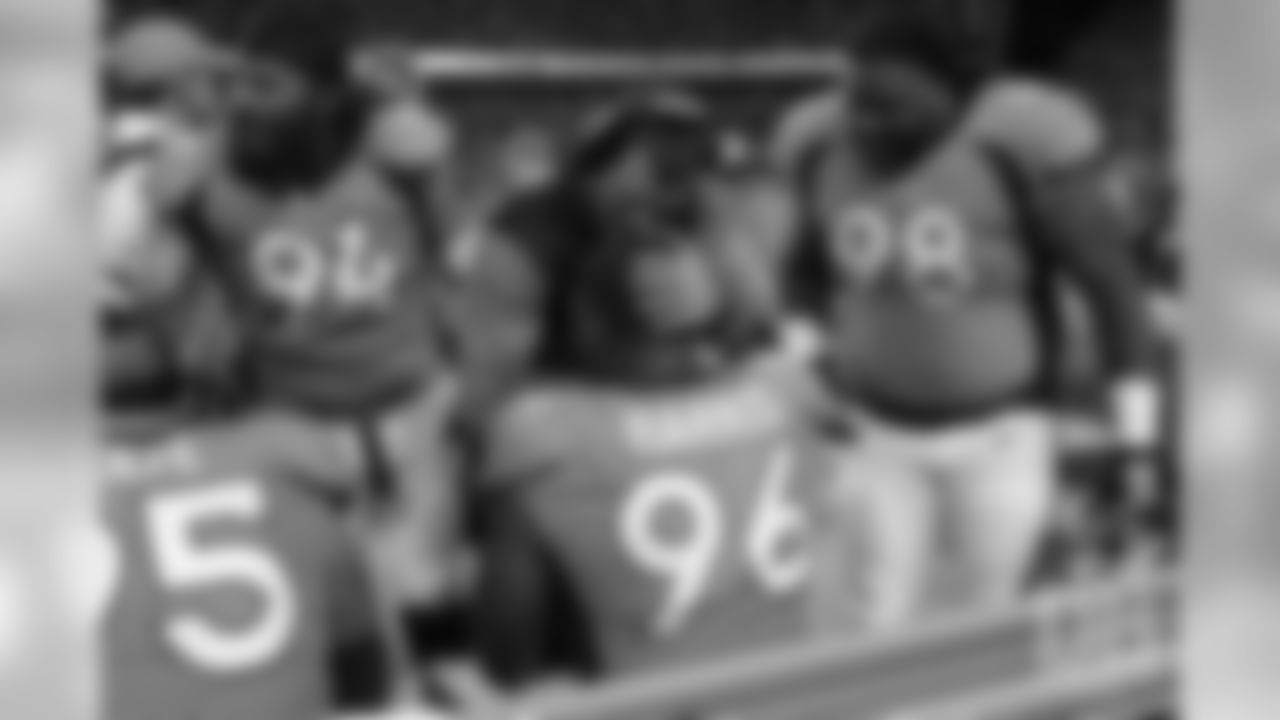

Photo by AP Images
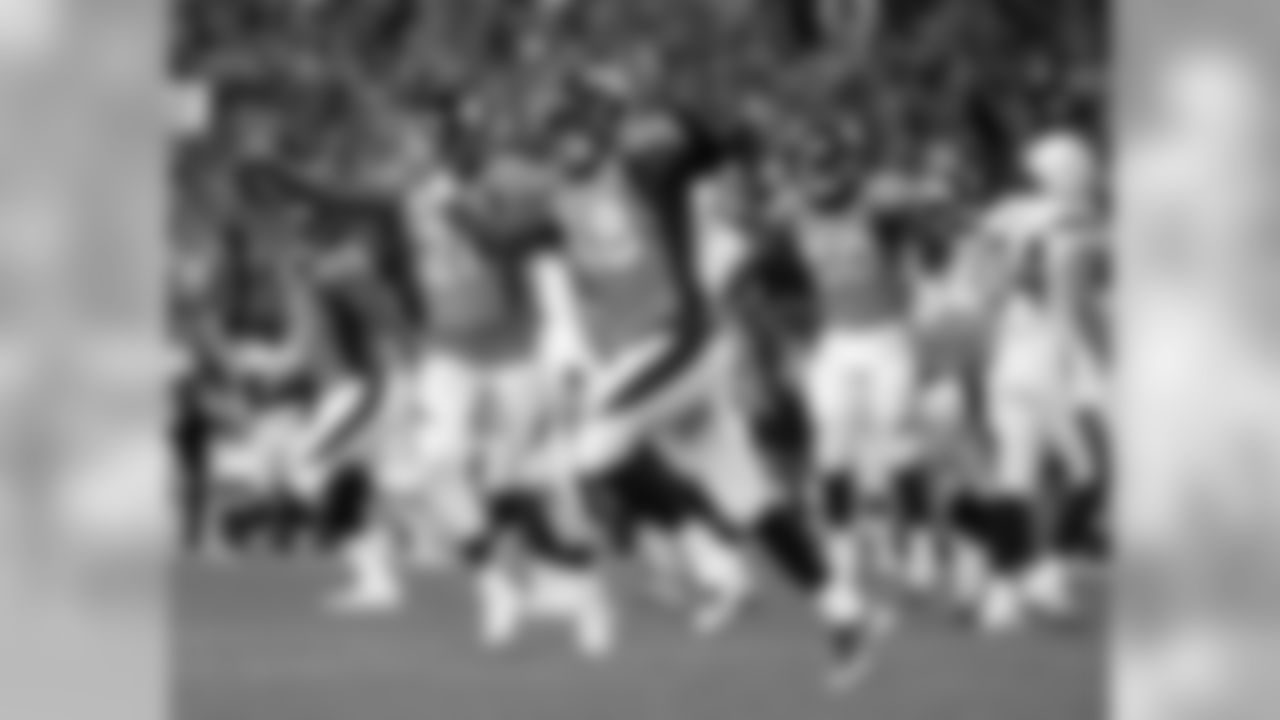
Photo by AP Images
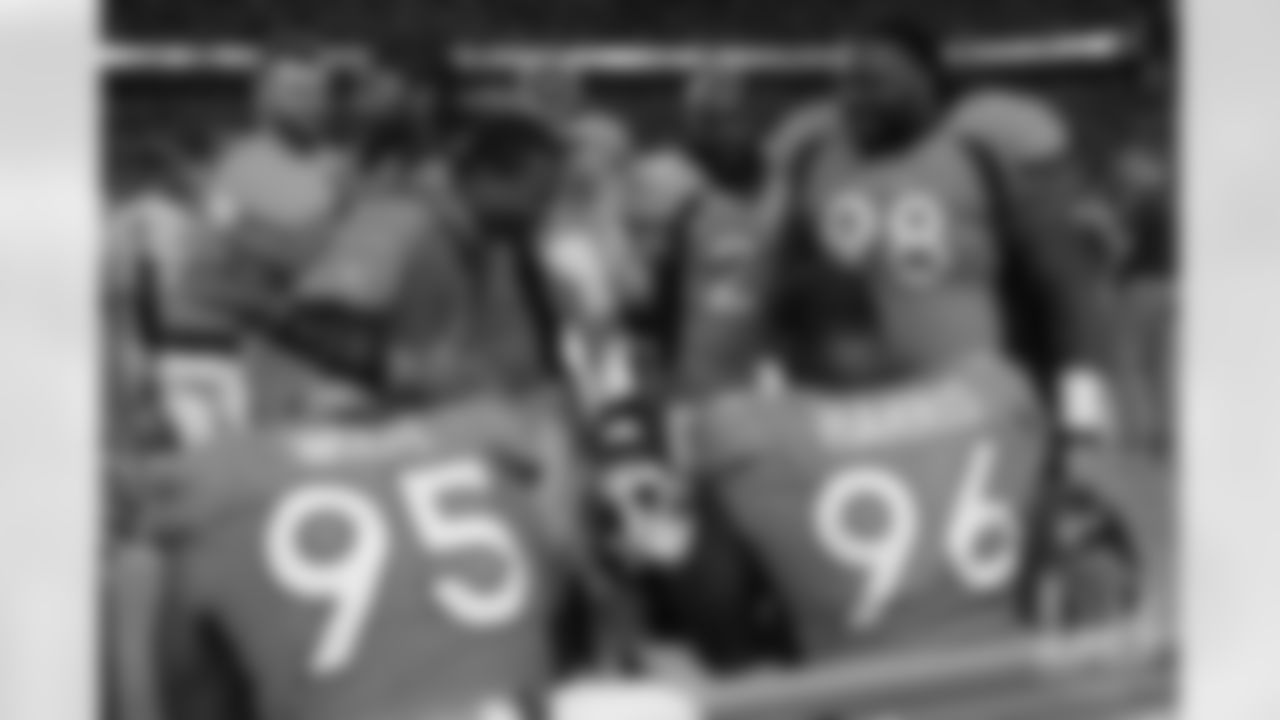
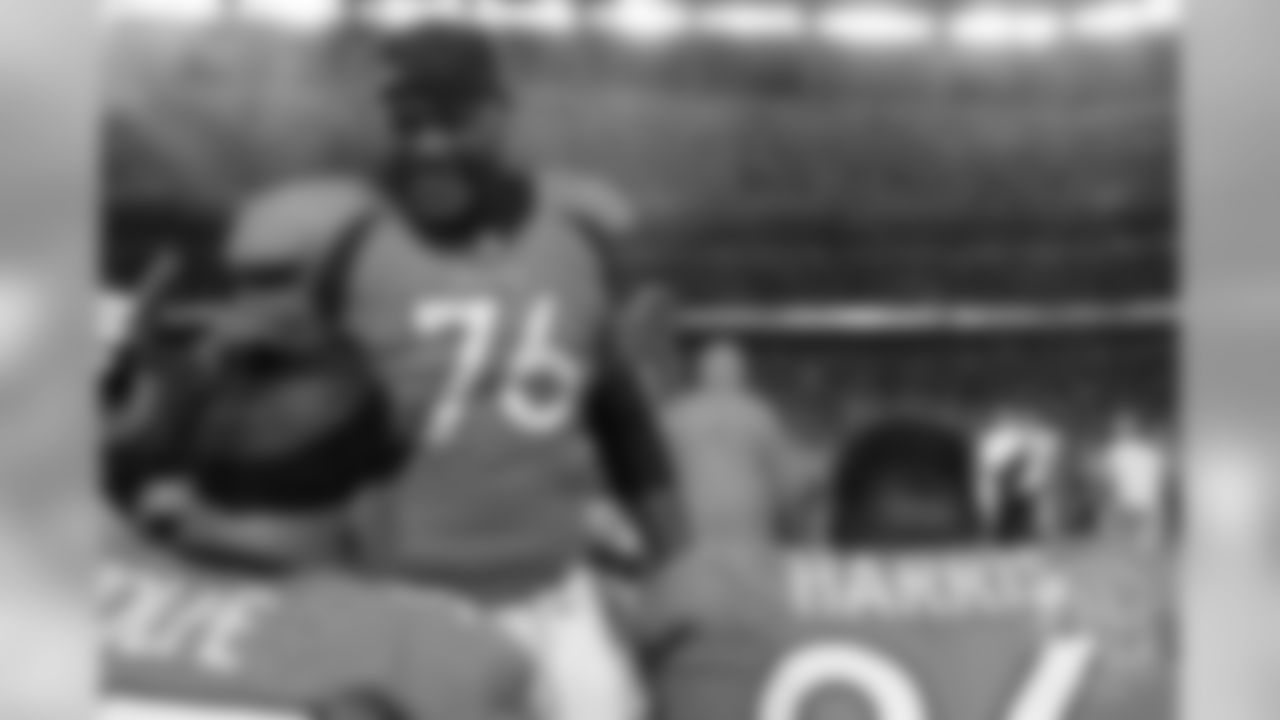
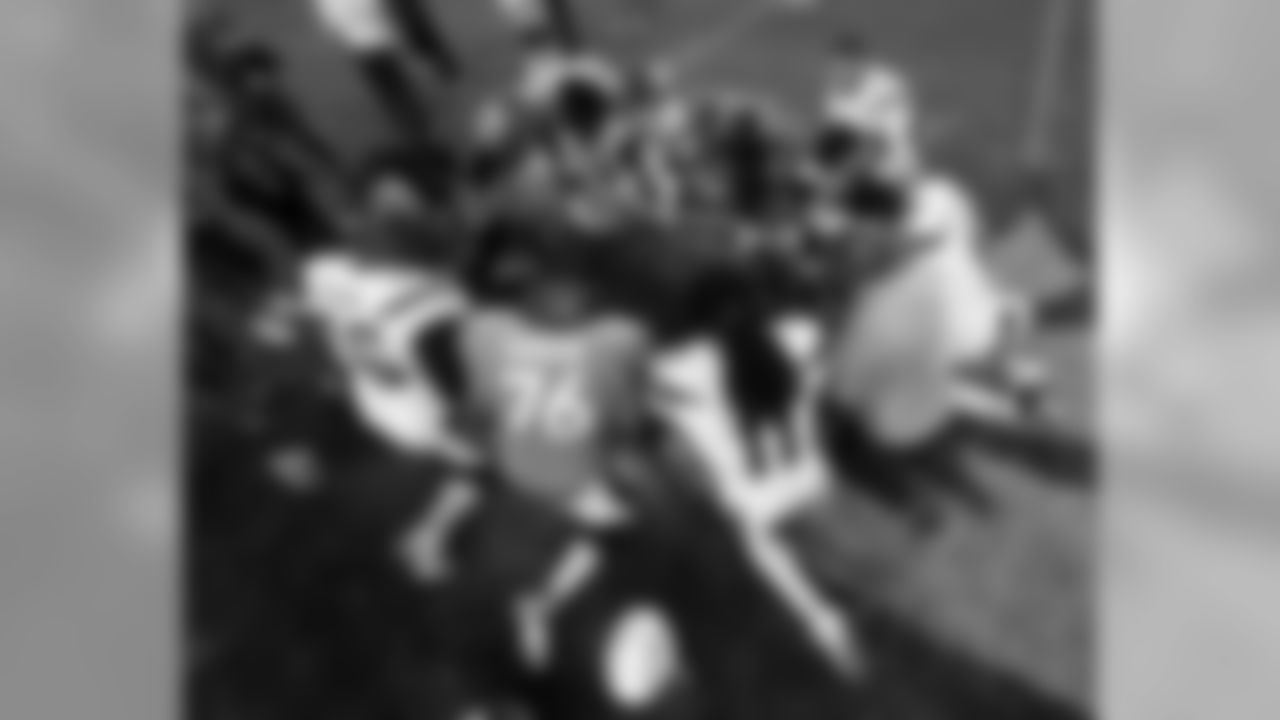
Photo by AP Images

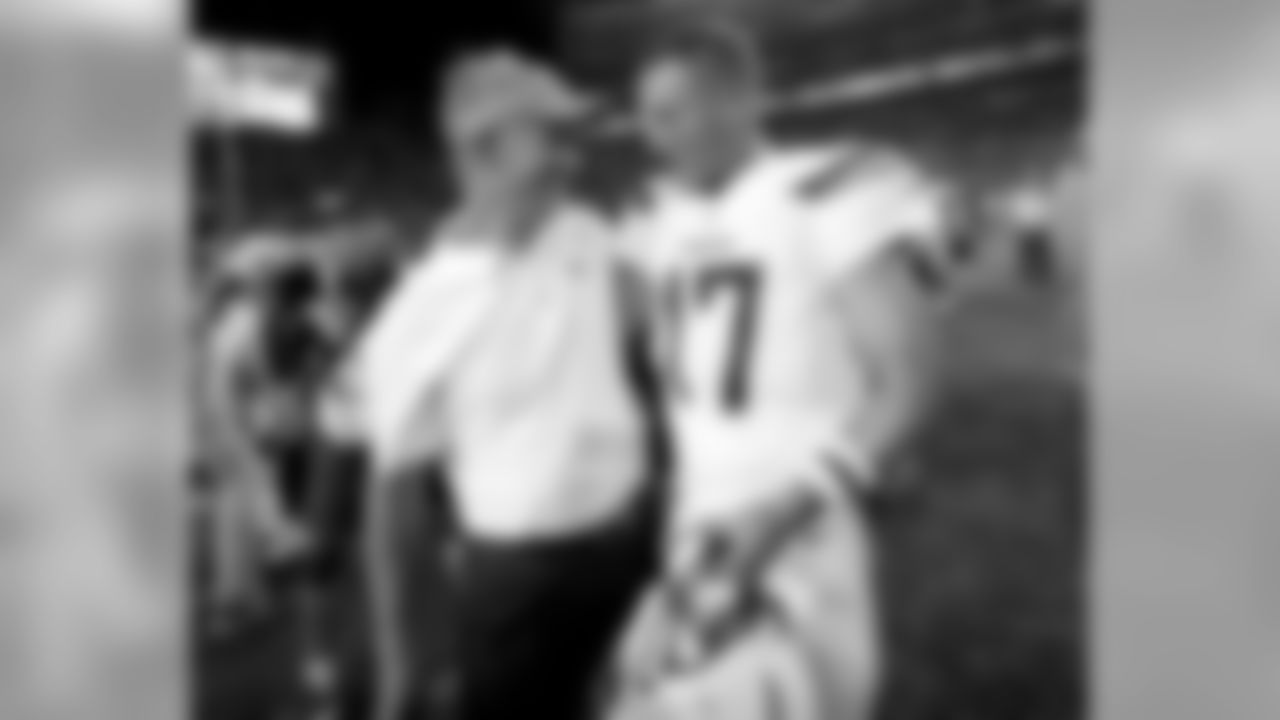
Photo by AP Images

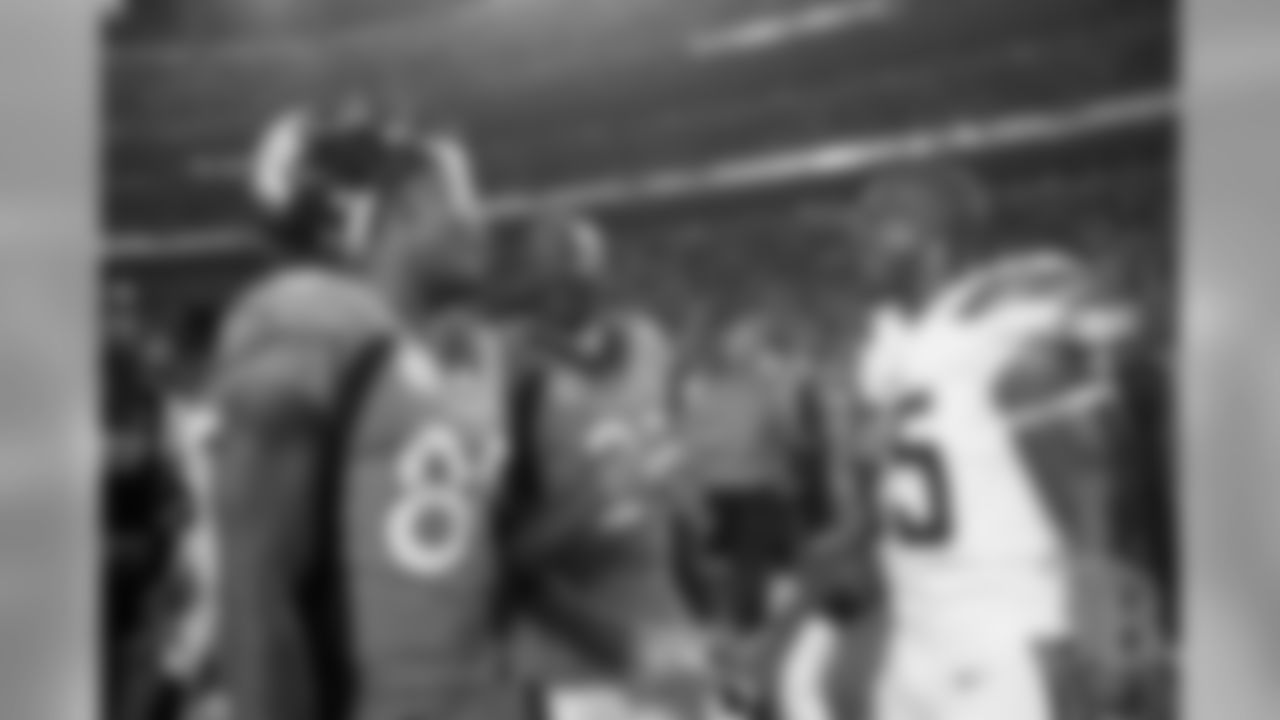


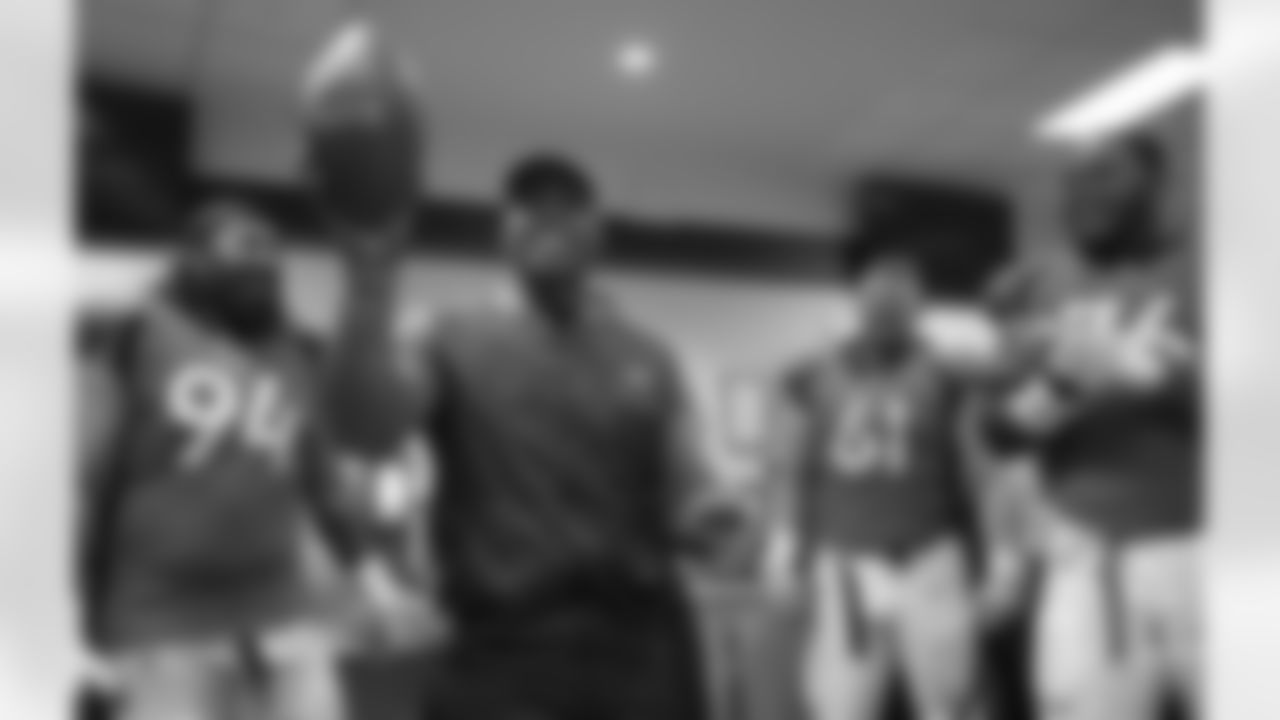

After three years as an assistant special teams coach in Kansas City, Brock Olivo is ready to implement his own system for the first time as the Broncos' special teams coordinator. But there's much more to Olivo than just football, and that includes his dive into his Italian heritage.*
Ben Swanson: How did Isaiah McKenzie win the punt-returner job so quickly?
**
Brock Olivo:** Isaiah's had a really good camp. We drafted him for that purpose, to vet him as a punt returner. From what we saw in college playing in the SEC, he came in here, confident, and did a really good job catching the football. So he's done everything we've asked him to do up to this point. And I think Vance and I kind of feel the same way about him: 'Hey, let's vet the kid right now. Let's see what he's made of. Let's throw him in the fire and try to hit the ground running.' Now, having said that, he [had] not played in a game yet, so you've got to see, but that depth chart is always fluid, as you know. And we're fortunate; we have a stall of good returners here, so there' s a lot of good competition there. We're going to roll with Isaiah right now and see how it goes and take it from there.
BS: Head Coach Vance Joseph said Cody Latimer has the chance to be an All-Pro gunner. How did he position himself for that?
BO:Cody does. Coach said it; he hit the nail on the head. He has got all of the tangibles that you're looking for. He's big, he's fast, he's strong, he can be nasty. I agree wholeheartedly with Coach when he says that. If Cody wants it, he can be that guy. There's no question. So I'm excited about him. I've coached about him for the past, what, three years now, I guess, in Kansas City, so I know what kind of player he is. We hated playing against him.

BS: How have things changed for you on a daily basis at a practice as the coordinator and not the assistant?
BO: You have a lot more on your plate, obviously. Your organization responsibilities increase tenfold. And everything that happens on the field, special-teams-wise, is a reflection of your system. Now, having said that, I'd go out on a limb and say that I have by far one of the best special-teams coaches in the NFL as my assistant. Chris Gould is an awesome coach, 360 degrees, be it the specialists, be it the core phases. So I'm really fortunate to have Chris. But yeah, the responsibilities increase, obviously. It's also more exciting because you get to implement your system and call the game, so it's awesome, in a word.
BS: How difficult is it keeping 11 guys organized on a play like a punt return where they have to block players as they track the ball and try to set up a return?
BO:Very. That's the challenge: getting 11 guys in that amount of space on the same page. On offense and defense, everything starts in a much smaller area. Special teams spans the entire field sometimes. So it is a challenge, but that's the beauty of it, because it's a game of angles. It's geometry at the end of the day. If your players get the geometry of the game and they have some instincts and the timing piece of it, you can be really good. I think that a lot of the responsibility, though, falls on us as coaches to implement a system that's, for lack of better terms, simple enough that they can do that while running full speed, while under pressure, while knowing that opposition is flying down the field 100 miles per hour at them. So there's a lot of stuff to put together, but when it comes together, it is an awesome thing. It's a beautiful sight, man, because when a big play happens on special teams, there are so few of them, the plays. There are much more opportunities on offense and defense to make big plays. We have fewer shots on goal.

BS: There's also a sense that one dynamic player can occasionally drive an offense, but special teams really needs all 11 players working on the same page.
BO:That's very accurate. It's one thing to have a superstar returner, for example, but if you don't have 10 guys who are willing to lay it on the line and block for him, you're not going to have much success. You're going to have a great punter, but if you don't have guys who can cover or protect to begin with, you're going to have issues. It is the epitome of teamwork, special teams is. And we always talk about, 'Hey, the star of our unit is the unit. There's no individual star in our room.' So that's how we talk and that's how we work. It's fun.
BS: Back in your playing days at Missouri, what kind of rep did you have as a player?
BO:I was just known as a hard-working guy who showed up and did his job every day, probably a good leader by example. That's probably what I was known for.
BS: Can you tell me how you came to find yourself in Italy?
BO:I've always been fascinated with my Italian heritage, from the time I was a little boy growing up, hearing my grandparents speak Italian in the house during Christmas.
BS: Were they the first generation to immigrate here?
BO:No, they were not, but they were born to first-generation Italians and that was their mother's tongue until they went to school. That's just what they heard in the house. And, at least on my grandpa's side. Now, my grandma … both her parents are from Italy, as well, so she heard Italian growing up. Now when they went to school, obviously English was the primary language. But you would hear them speaking in this mix, this Italian-English mix. So when I was a little boy, it was interesting to me. It was something I would ask my dad about, or my uncle, and be like, 'What's that?' So my grandpa would teach me Italian and I became fascinated with that part of our family and wanted to become closer to it. So when I retired from the NFL as a player, I inquired about going overseas and coaching and playing in Italy, so I could get closer to my roots, my Italian roots, so that's what I did. And that's kind of how I discovered Italy and the Italian part of my family. And I made a lot of friends over there and ended up playing and coaching and from there it just kind of led to a second home for me.
BS: What is something you learned how to do or make there?
BO:When you think about Italy, one of the things you think about is the Italian food culture, but that encompasses a lot of stuff. It's food, wine, agriculture. Most of the stuff grown in Italy is organic by nature. They don't label it organic because it is organic; that's how they've always been and how they've maintained it. So I learned about that. I learned about winemaking. I learned how to harvest olives. I went and saw the olive-oil process and my wife being from there, Sicilian, I learned how to make bread, cannoli, various types of stuff. So cooking obviously has been something that I've learned. Now, I'm not really passionate about all that stuff — cooking and whatnot — but just being there and being part of that culture, in a sense, you learn it. It's infectious. It really is. I'm fascinated by the way that they do things, the way they do things as they did 100 years ago. That fascinates me.

I really admire the way that they preserve traditions, if you will. I love the fact that you can walk into an Italian café and there's a real barista making real espresso, not some automatic push-a-button-and-it-comes-out [process]. No, he or she is grinding the beans, they're tamping it, they're pulling the shot for the right amount of time and they're serving it to you, as if every individual one was the only one they're going to make that day. I love that about the Italian culture. I love that you're at a table setting for hours at a time and you're taking the time to cultivate the human connection around the table. I love that. So those little things, I miss those little traditions when I'm here.
Having said all that, being Italian-American is awesome because you get the best of both worlds. You get the old world traditions of Italy but then you get the awesomeness of being American, all of our daily liberties and the opportunities here. I just feel really fortunate to be that and it's something I'm very proud of. I really am.
BS: What's your favorite Italian meal?
BO:That's really tough. It's hard to beat truffles. Anything with truffles — white truffles. I like black truffles too, but the white truffle is a little more … that's a wintertime thing. And so you can only get it certain times of the year, fresh. Anyway, anything with white truffle shaved on top of it, or infused, is to die for. Black truffles are good, too. It's just not as pungent, and it's not as strong. It's a real delicacy. If you give me a plate of homemade linguine al tartufo and you've got me.
[This interview first appeared in the Sept. 11, 2017, Gameday Magazine. It has been edited for brevity and clarity.]*
*













